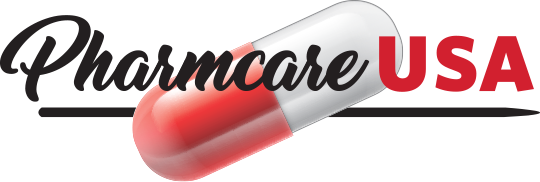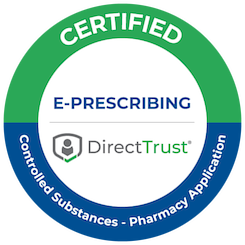Long-term care (LTC) pharmacy services are an integral component within the healthcare industry, providing specialized pharmaceutical care to individuals residing in LTC facilities. These facilities typically cater to elderly patients or those with chronic conditions requiring ongoing medical care and assistance with daily living activities. LTC pharmacies are distinct from retail and community pharmacies, as they focus on the unique needs of LTC patients and the facilities that serve them.
LTC pharmacies provide a range of services, including dispensing medications, medication therapy management, and clinical consulting services. Additionally, they assist with regulatory compliance and offer various technological solutions to help streamline medication management and administration. This specialized approach to pharmacy services is crucial in ensuring the well-being and overall quality of life for individuals residing in LTC facilities.
In this article, we will explore the importance of LTC pharmacies in enhancing the quality of life for LTC patients, the benefits of LTC pharmacy services for facilities, long-term care medication consulting services, compliance and regulatory requirements assistance, medication management, and the role of LTC pharmacies in skilled nursing facilities. We will also look at future trends in long-term care pharmacy and conclude with a call-to-action for those looking to improve their LTC facility’s medication management and compliance.
The Importance of LTC Pharmacies in Enhancing Quality of Life for LTC Patients
LTC pharmacies play a vital role in enhancing the quality of life for patients in long-term care facilities. They do this in several ways, including:
- Ensuring the timely delivery and accurate administration of medications: LTC pharmacies work closely with facilities to ensure that medications are dispensed, delivered, and administered to patients in a timely and accurate manner. This helps to maintain patients’ health, reduce the risk of medication errors, and promote overall well-being.
- Providing medication therapy management services: Medication therapy management involves reviewing patients’ medication regimens to identify and resolve any potential issues, such as drug interactions, duplicate therapies, or inappropriate dosages. LTC pharmacies offer these services to help optimize patients’ medication regimens and improve their health outcomes.
- Offering clinical consulting services: LTC pharmacies employ clinical pharmacists who are specially trained to provide expert advice on medication-related issues. These professionals work closely with LTC facility staff and prescribers to ensure that patients receive the most appropriate and effective medications for their conditions.
Benefits of LTC Pharmacy Services for LTC Facilities
LTC facilities can experience numerous benefits when partnering with a dedicated LTC pharmacy, including:
- Reduced medication errors: LTC pharmacies use advanced technology, such as barcoding and automated dispensing systems, to ensure the accurate dispensing and administration of medications. This helps to minimize the risk of medication errors and promote patient safety.
- Improved medication adherence: LTC pharmacies provide medication management services that help to ensure patients receive their medications as prescribed. This can lead to improved medication adherence, which is crucial in managing chronic conditions and maintaining overall health.
- Enhanced regulatory compliance: LTC pharmacies are well-versed in the various regulations governing long-term care facilities and can provide expert guidance to help ensure compliance. This can help to reduce the risk of citations, fines, and other negative consequences associated with non-compliance.
LTC Pharmacy Software and Management Tools
LTC pharmacies utilize various software and management tools to help streamline medication management processes and improve patient care. Some examples of these tools include:
- Electronic Medication Administration Records (eMAR): eMAR systems help to track medication administration, ensuring that patients receive their medications as prescribed and that any missed doses or administration errors are quickly identified and addressed.
- Pharmacy management systems: Pharmacy management software helps LTC pharmacies manage various aspects of their operations, such as inventory management, billing, and reporting. This can help to improve efficiency and ensure that facilities receive the medications they need when they need them.
- Electronic Health Records (EHR) integration: Many LTC pharmacies offer EHR integration, allowing for seamless communication between the pharmacy and the LTC facility. This can help to improve the accuracy and timeliness of medication orders, as well as enhance overall patient care.
Long-Term Care Medication Consulting Services
LTC pharmacies often provide medication consulting services, which can play a crucial role in improving patient care and outcomes. These services typically involve a clinical pharmacist working closely with facility staff and prescribers to review patients’ medication regimens and provide expert guidance on optimizing therapy. Some examples of long-term care consulting services include:
- Medication regimen reviews: Clinical pharmacists review patients’ medication regimens to identify and resolve any potential issues, such as drug interactions, duplicate therapies, or inappropriate dosages.
- Staff education and training: LTC pharmacies can provide education and training to facility staff to help them better understand medication management, administration, and monitoring. This can help to improve patient care and reduce the risk of medication errors.
- Quality improvement initiatives: LTC pharmacies can help facilities implement quality improvement initiatives related to medication management, such as developing protocols for high-risk medications, promoting medication adherence, or reducing medication waste.
Long-Term Care Facility Compliance and Regulatory Requirement Assistance from LTC Pharmacies
LTC pharmacies play a critical role in helping long-term care facilities maintain compliance with various regulations governing medication management, such as those established by the Centers for Medicare and Medicaid Services (CMS) and state pharmacy boards. Some ways LTC pharmacies assist with compliance include:
- Providing guidance on medication storage and security: LTC pharmacies can help facilities develop and implement policies and procedures related to medication storage and security to ensure compliance with regulatory requirements.
- Assisting with medication disposal and waste management: LTC pharmacies can provide guidance on proper medication disposal and waste management practices, helping facilities comply with environmental regulations and reduce the risk of medication diversion.
- Offering expertise in regulatory compliance: LTC pharmacies are well-versed in the various regulations governing long-term care facilities and can provide expert guidance to help ensure compliance, reducing the risk of citations, fines, and other negative consequences associated with non-compliance.
Medication Management in Long-Term Care Facilities
Effective medication management is crucial in long-term care facilities, as it helps to ensure that patients receive the appropriate medications for their conditions and that any potential medication-related issues are quickly identified and addressed. LTC pharmacies play a critical role in this process, offering services such as:
- Dispensing medications: LTC pharmacies dispense medications for long-term care patients, ensuring that they receive the correct medications in the appropriate dosages.
- Medication therapy management: LTC pharmacies provide medication therapy management services to help optimize patients’ medication regimens, improve health outcomes, and reduce the risk of medication-related problems.
- Medication administration support: LTC pharmacies can provide support and guidance to facility staff to help ensure the accurate and timely administration of medications, promoting patient safety and well-being.
The Role of LTC Pharmacies in Skilled Nursing Facilities
Skilled nursing facilities (SNFs) are a type of long-term care facility that provides a higher level of medical care and therapy services to patients. LTC pharmacies play a particularly important role in these facilities, as they help to ensure that patients receive the medications they need to manage their conditions and support their recovery. Some ways LTC pharmacies support SNFs include:
- Providing specialized medication services: LTC pharmacies can provide specialized medication services tailored to the unique needs of SNF patients, such as IV therapy or complex medication regimens.
- Collaborating with interdisciplinary care teams: LTC pharmacies can work closely with the interdisciplinary care teams in SNFs, providing expert guidance on medication-related issues and helping to develop individualized care plans for patients.
- Supporting regulatory compliance: LTC pharmacies can help SNFs navigate the complex regulatory landscape governing medication management, providing guidance and support to ensure compliance with all relevant regulations.
Future Trends in Long-Term Care Pharmacy
As the long-term care pharmacy industry continues to evolve, several trends are likely to shape its future. Some of these trends include:
- Increasing use of technology: The use of technology in LTC pharmacies is expected to continue to grow, with advances in automation, data analytics, and telehealth offering new opportunities to improve medication management and patient care.
- Expanding focus on patient-centered care: LTC pharmacies are likely to place an increasing emphasis on patient-centered care, working closely with patients, families, and care teams to develop individualized medication management plans thatfocus on improving patient outcomes and quality of life.
- Greater collaboration and integration with healthcare providers: As healthcare becomes more integrated, LTC pharmacies are expected to work more closely with other healthcare providers, such as hospitals and primary care physicians, to ensure continuity of care and improved patient outcomes.
- Increased emphasis on data and analytics: The use of data and analytics is expected to become more prevalent in LTC pharmacy, with advanced analytics tools helping to identify medication-related issues and optimize medication regimens.
- Greater emphasis on regulatory compliance: With increased scrutiny from regulatory bodies, LTC pharmacies are likely to place a greater emphasis on compliance, ensuring that they meet all regulatory requirements and providing expert guidance to facilities on compliance-related issues.
Conclusion
Long-term care pharmacies play a vital role in enhancing the quality of life for LTC patients, providing specialized pharmaceutical care that is tailored to the unique needs of these individuals. LTC pharmacies offer a range of services, including medication dispensing, management, consulting, and regulatory compliance assistance, all of which help to ensure that patients receive the medications they need to manage their conditions and improve their health outcomes.
As the long-term care pharmacy industry continues to evolve, it is likely that we will see increased use of technology, a greater focus on patient-centered care, and increased collaboration and integration with other healthcare providers. Through these trends, LTC pharmacies will continue to play a critical role in improving the quality of life for LTC patients and helping facilities to provide the best possible care.
If you are looking to improve your LTC facility’s medication management, consulting, and compliance, Pharmcare USA can help. Contact us for a consultation and learn how our specialized pharmacy services can enhance the care you provide to your LTC patients.




